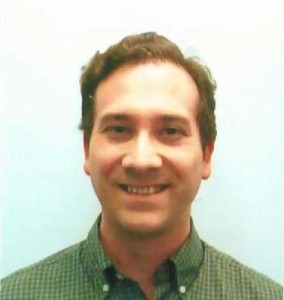Invited Speakers
Ray Solomonoff (In Memoriam)
 The Great Ray Solomonoff, pioneer of Machine Learning, founder of Algorithmic Probability Theory, father of the Universal Probability Distribution, creator of the Universal Theory of Inductive Inference, passed away on Monday 7 December 2009 at age 83, from complications in the wake of a broken aneurism in his head. He is survived by his loving wife of 40 years, Grace.
The Great Ray Solomonoff, pioneer of Machine Learning, founder of Algorithmic Probability Theory, father of the Universal Probability Distribution, creator of the Universal Theory of Inductive Inference, passed away on Monday 7 December 2009 at age 83, from complications in the wake of a broken aneurism in his head. He is survived by his loving wife of 40 years, Grace.
Ray Solomonoff was the first to describe the fundamental concept of Algorithmic Information or Kolmogorov Complexity. In the new millennium his work became the foundation of the first mathematical theory of Optimal Universal Artificial Intelligence.
Ray intended to deliver an invited lecture at the upcoming AGI 2010, the Conference on Artificial General Intelligence (March 5-8 2010) in Lugano (where he already spent time in 2001 as a visiting professor at the Swiss AI Lab IDSIA). The AGI conference series would not even exist without his essential theoretical contributions. With great sadness AGI 2010 will be held “In Memoriam Ray Solomonoff.”
Ray will live on in the many minds shaped by his revolutionary ideas.
Richard Sutton
Keynote Speaker
 Richard S. Sutton is a Professor and iCORE chair in the Department of Computing Science, University of Alberta. The co-author of the textbook Reinforcement Learning: an Introduction, he has made numerous contributions to the literature of artificial intelligence. His research interests are centred on learning problems faced by a decisionmaker interacting with its environment, which he views as crucial to artificial intelligence. (Biography.)
Richard S. Sutton is a Professor and iCORE chair in the Department of Computing Science, University of Alberta. The co-author of the textbook Reinforcement Learning: an Introduction, he has made numerous contributions to the literature of artificial intelligence. His research interests are centred on learning problems faced by a decisionmaker interacting with its environment, which he views as crucial to artificial intelligence. (Biography.)
Randal Koene
Randal A. Koene is the Director of the Department of Neuroengineering at Tecnalia, a co-founder of the Neural Engineering Corporation of Massachusetts, and a member of the Oxford working group that convened in 2007 to create a first roadmap toward whole brain emulation. He has studied in computational neuroscience, psychology, information theory, electrical engineering and physics and has whole-brain emulation as a research goal.
